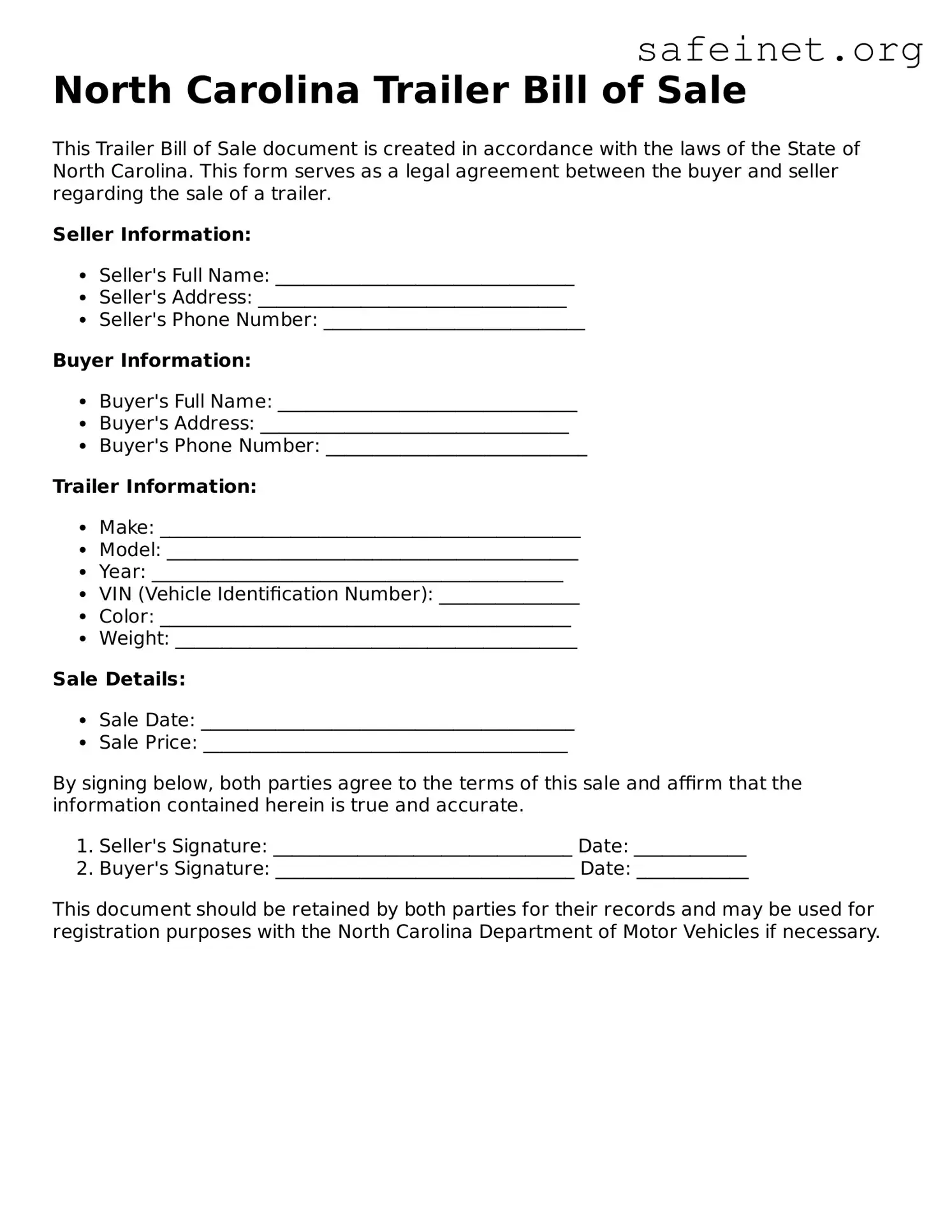What is a North Carolina Trailer Bill of Sale?
A North Carolina Trailer Bill of Sale is a legal document that serves as proof of the sale and transfer of ownership of a trailer from one party to another. This form contains essential information about the trailer, such as its make, model, year, and Vehicle Identification Number (VIN), as well as details about the seller and buyer. It is an important record that can help protect both parties in the transaction.
Is the Trailer Bill of Sale required in North Carolina?
While a Trailer Bill of Sale is not legally mandated in every situation in North Carolina, it is highly recommended. Having this document can help establish a clear record of the transaction, which is beneficial if there are any disputes or questions about ownership in the future. It can also be an essential requirement when registering the trailer with the North Carolina Department of Motor Vehicles (DMV).
What information should be included in the Bill of Sale?
The Bill of Sale should include several critical details. This includes the names and addresses of both the seller and the buyer, the purchase price, the date of the sale, and a detailed description of the trailer, including its VIN, make, model, and year. It's also advantageous to have the seller's signature and the date of signing to authenticate the document.
Do I need to have the Bill of Sale notarized?
In North Carolina, notarization of the Trailer Bill of Sale is not typically required. However, having a notary public witness the signing can add an extra layer of legitimacy to the document. This is especially useful if there might be any future disputes regarding the sale or ownership of the trailer.
Can I use a generic Bill of Sale form?
Yes, you can use a generic Bill of Sale form, but it is advisable to use a template that is specifically designed for trailers in North Carolina. Tailored forms usually ensure compliance with state-specific regulations. They often include all the necessary elements required for the transaction, reducing the chance of errors or omissions.
What should I do after completing the Bill of Sale?
Once the Bill of Sale is completed and signed by both parties, it is important to retain copies for personal records. The buyer should also take the document to the DMV to register the trailer in their name, typically within 28 days of the sale. This step ensures that the buyers can lawfully operate the trailer and helps avoid any legal issues later on.
